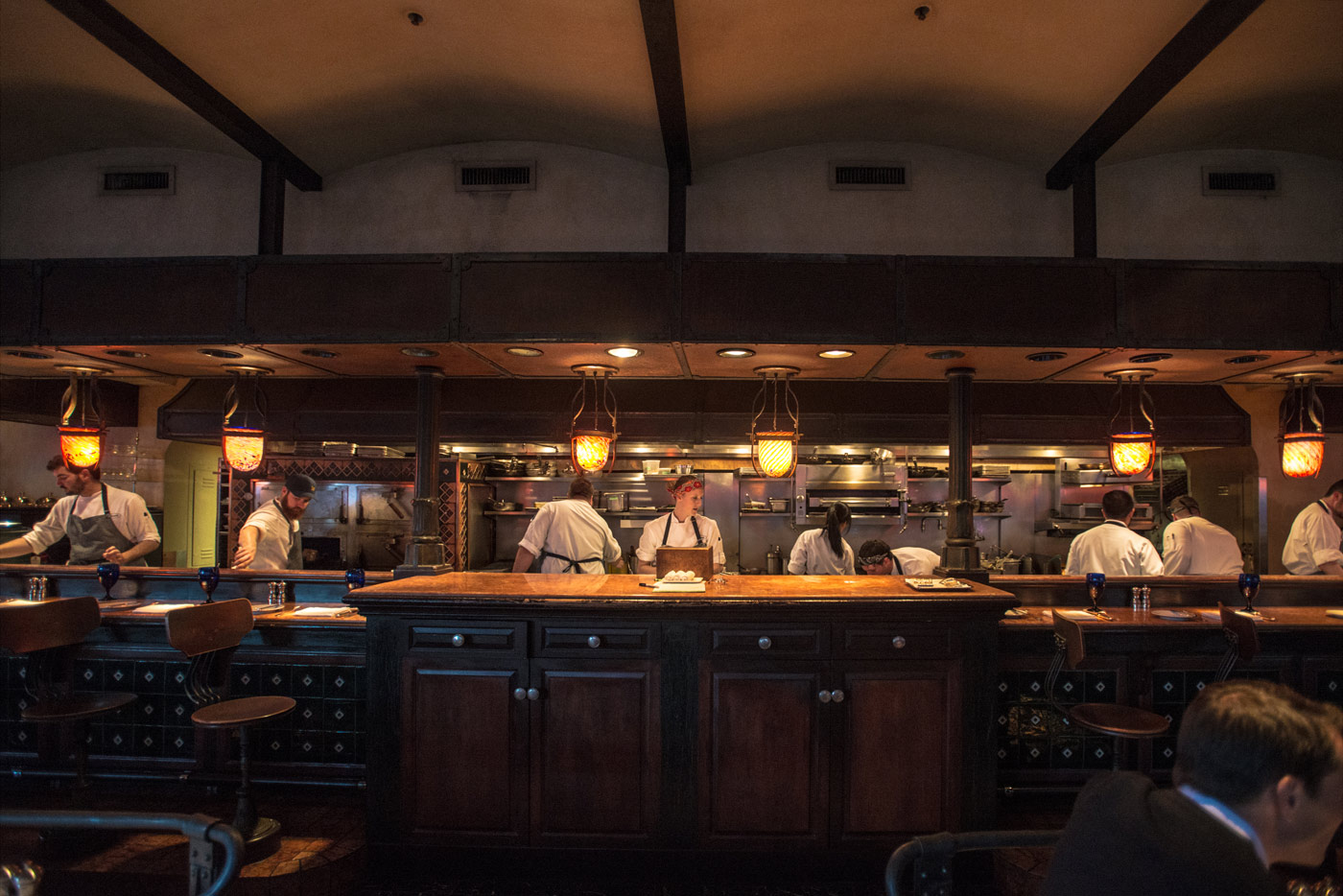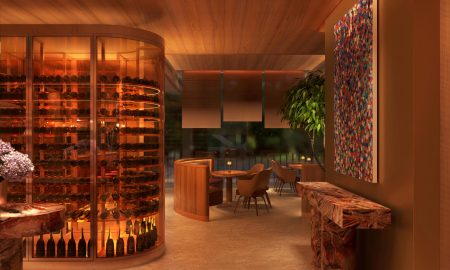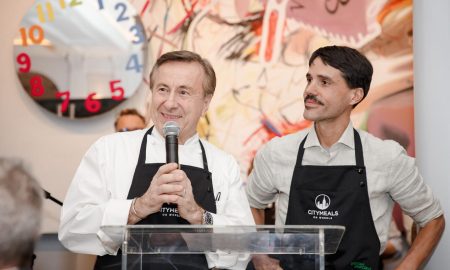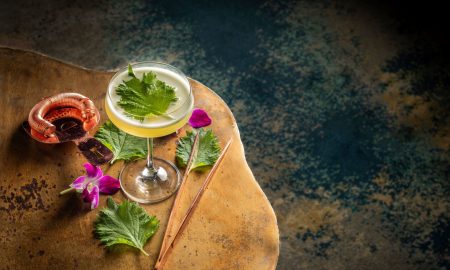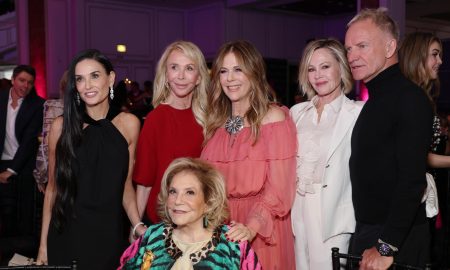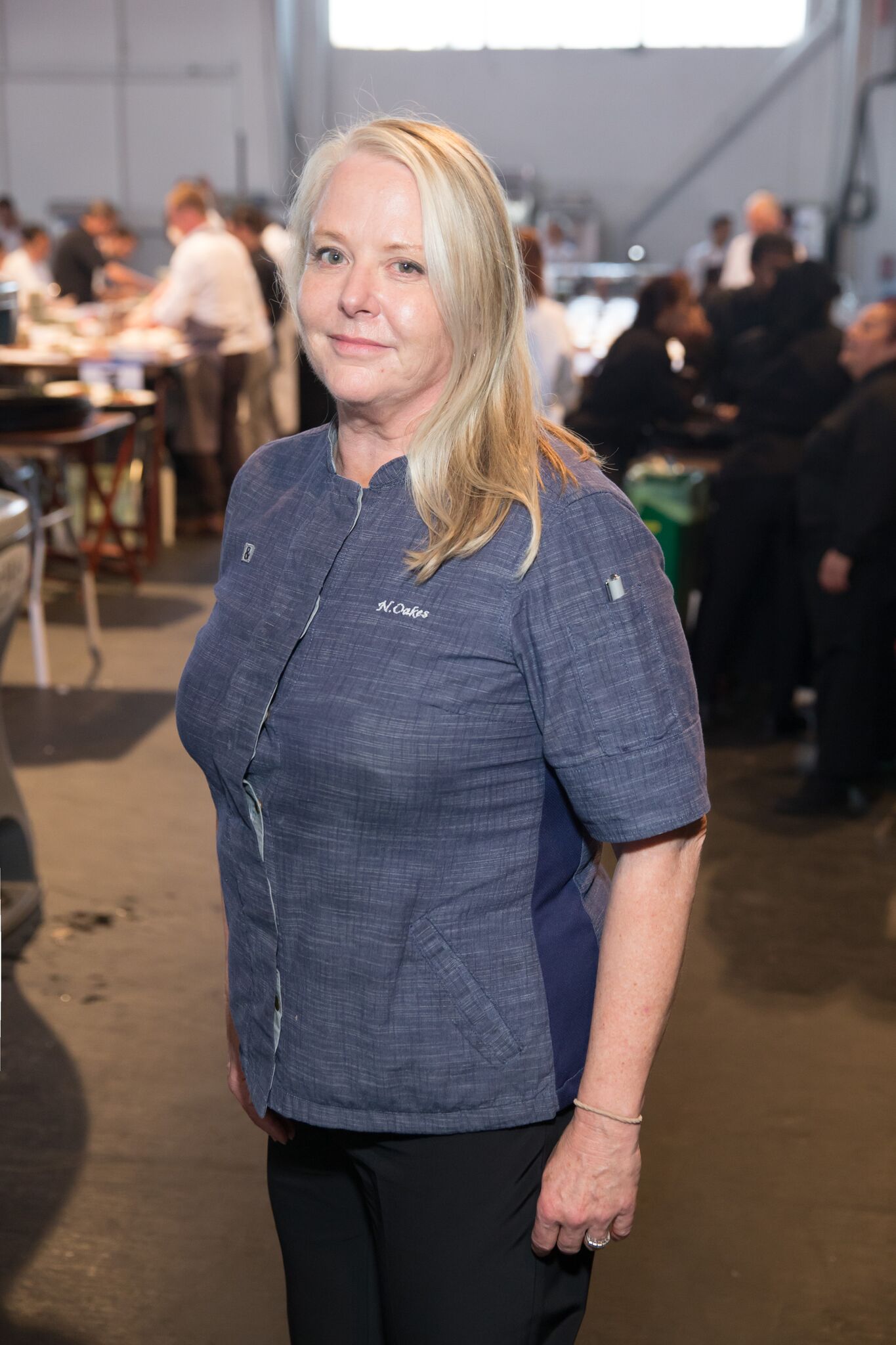
Photo Credit: Drew Altizer
There are very few names that are synonymous with San Francisco’s restaurant industry, but Nancy Oakes, the chef and owner of Boulevard and Prospect, is at the top of that short list. Oakes has been a defining figure in the Bay Area culinary scene for the past 40 years. One of the things that makes Oakes a unique personality is that when she started cooking—she worked for many years in the front of the house of various eateries—it was at her own restaurant. During her chef career, she has always been in charge. Therefore, she didn’t experience some of the hardships that many other females have faced, in particular, a male-driven sometimes sexually abusive environment. Oakes, has, however, made herself open and available to the younger generation and is a motherly figure in the community today.
In the past month, Oakes has been incredibly busy: she chaired the Meals on Wheels gala (an organization which she’s been involved with for over 25 years), cooked dinner for 1000 at Auction Napa Valley, and jetted to Hawaii for the Kapalua Wine & Food Festival. Between all of this, Oakes sat down with us to discuss her career.
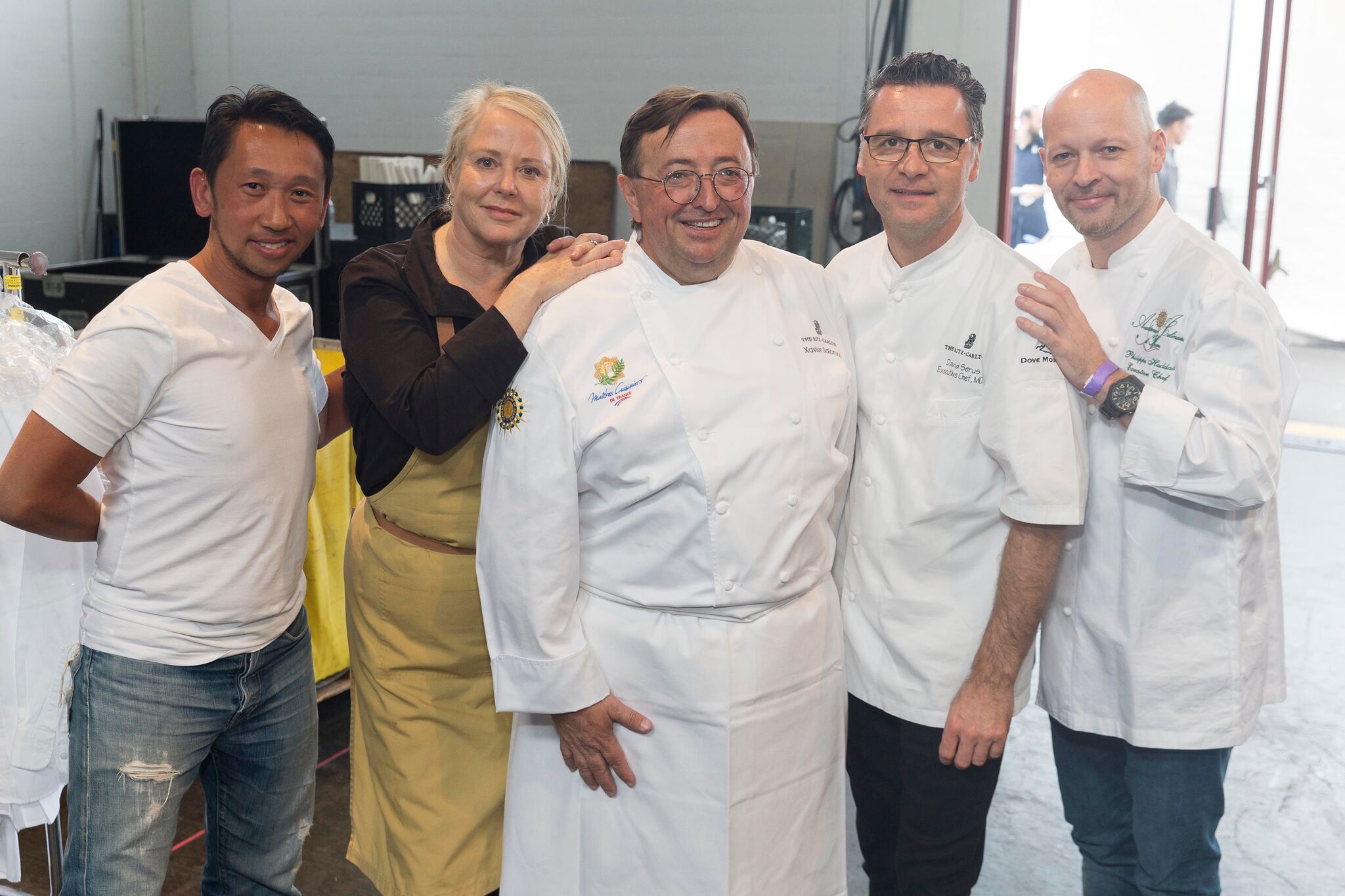
Photo Credit: Drew Altizer
HL: Let’s talk about the Auction. Was this your first time being the chef?
Nancy Oakes: Well, no. Well, yes and no. Many years ago they used to do this quite differently. It was 2,000 people and the time that I did it before, they did it as a group of women chefs, so it was many of us cooking. This is certainly the first time being the only person for something that large, and it was not my menu in a sense. It was my interpretation of their grandmother’s [the chairs of the Auction, the Mondavi sisters] menu. I was given a hand-written record of what the family had remaining of the grandmother’s recipes. It was served family style and there were always a couple of choices on the table. You’re dealing with a lot of food preferences, likes, dislikes, and allergies. So you have to try to troubleshoot that.
HL: In the past, did you worry about people’s dietary needs?
NO: No, people have become allergic to everything. It’s either environmental stress or over-consumption can sometimes lead to sensitivity. I believe that an increase in sugar has led people to carbohydrate or gluten-intolerances. They’re also putting sort of a warning sign on old wheat. In other words, wheat that is pressed and stored too long and has become indigestible in a way.
HL: What is it like working with fellow female chefs like Nancy Silverton [who did a demonstration with Oakes at the Kapalua Wine & Food Festival]?
NO: Nancy and I have traveled together for years. I adore Nancy, and we try to go on the road as the two Nancys. I’ve been to Bangkok with her. I’ve been to Mexico City. We do a lot of the same charity events. For the most part, women are more cooperative and a little less competitive. But that’s our nature. Women are used to working in a team. It’s how we get things done. Men go off by themselves with their spear. We go on massive hunter-gatherer walks. So we’re used to team sports.
HL: What’s your advice to young female chefs who are starting out today?
NO: You have to carefully consider the reputation in who you’re going to work for. A lot of that information is available. Most of the people who have had big fingers pointed at them right now, this was not unknown. As a woman, we’re always, I mean, it’s not fair, but we’re still on guard if you will. Does that sound terrible? Younger generations are under the impression that all of that has gone away, but it’s never gone away. Maybe it can go away this time.
HL: What do you think is the biggest challenge facing any chef in San Francisco today?
NO: It’s incredibly expensive to do business here. Currently for many reasons. Rent is one of them, but there’s a lot of other pressures. Other areas don’t have to offer healthcare or paid time off. All of this comes at a cost. I won’t go into my rant on local government who don’t seem to understand that all businesses are not created equal. They do not have the same margins and can’t always do things that say, the tech companies can do. But probably the biggest challenge is there are no employees. If they want to come and work for you and they want to relocate and come here for the experience, there’s no place for them to live.
HL: What achievement are you most proud of?
NO: I’m very grateful and proud of the awards that I’ve been given. But as I look back, it’s the people that have gone on to be successful are the thing I’m the proudest of.







